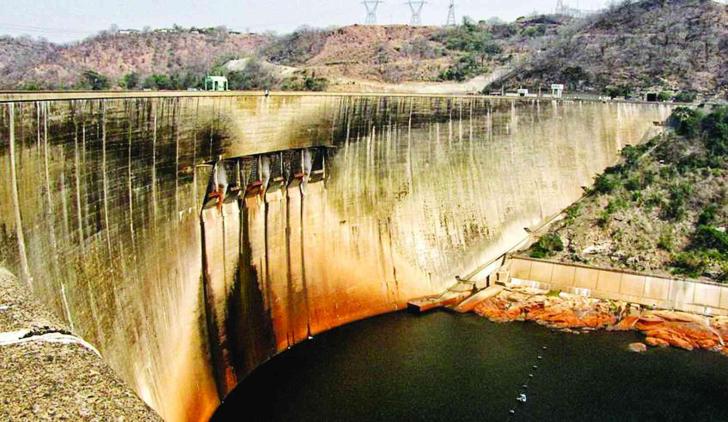News / National
Kariba dam faces shutdown
03 Sep 2024 at 14:43hrs |
0 Views

Zimbabwe is facing increased load-shedding due to critically low water levels at Kariba Dam, a consequence of the El Niño-induced drought affecting the southern Africa region. The country received below-normal rainfall during the 2023/24 season, leading to the drying up of rivers and water bodies as it enters the peak of the lean season. This situation threatens the continued operation of the Kariba Hydroelectric Power Station, which is the country's largest power generator.
The Zambezi River Authority, which manages the water at Kariba, reported that the dam's water level has dropped to 476.70 meters, leaving only 1.2 meters of live storage water available for power generation. As a result, Kariba has been generating just 215 megawatts (MW) daily, far below its installed capacity of 1,050MW.

Power generation at Hwange Thermal Power Station has also fluctuated, with output ranging from 780MW to 1,099MW, but still below its installed capacity of 1,560MW. Independent power producers have similarly seen a decline in production, further exacerbating the power shortage.
The ongoing power crisis in Zimbabwe, which has persisted since 2003, is worsening as demand exceeds supply. Technical issues at Hwange and a lack of investment in renewable energy sources have contributed to the problem. Households are now experiencing power outages lasting over 15 hours daily, as most of the available power is directed toward industrial use.
In response, Zesa Holdings is considering installing a utility-scale battery energy storage system to reduce power cuts during peak hours. Meanwhile, neighboring Zambia is also facing a power crisis, implementing a strict power-rationing schedule due to similar challenges.
Online watchdog Zimbabwe Price Check has criticized Zimbabwe's reliance on Kariba for hydroelectric power and urged the country to shift toward renewable energy sources like solar and wind to mitigate the impact of climate change on power generation.
The Zambezi River Authority, which manages the water at Kariba, reported that the dam's water level has dropped to 476.70 meters, leaving only 1.2 meters of live storage water available for power generation. As a result, Kariba has been generating just 215 megawatts (MW) daily, far below its installed capacity of 1,050MW.

The ongoing power crisis in Zimbabwe, which has persisted since 2003, is worsening as demand exceeds supply. Technical issues at Hwange and a lack of investment in renewable energy sources have contributed to the problem. Households are now experiencing power outages lasting over 15 hours daily, as most of the available power is directed toward industrial use.
In response, Zesa Holdings is considering installing a utility-scale battery energy storage system to reduce power cuts during peak hours. Meanwhile, neighboring Zambia is also facing a power crisis, implementing a strict power-rationing schedule due to similar challenges.
Online watchdog Zimbabwe Price Check has criticized Zimbabwe's reliance on Kariba for hydroelectric power and urged the country to shift toward renewable energy sources like solar and wind to mitigate the impact of climate change on power generation.
Source - newsday
Join the discussion
Loading comments…




























